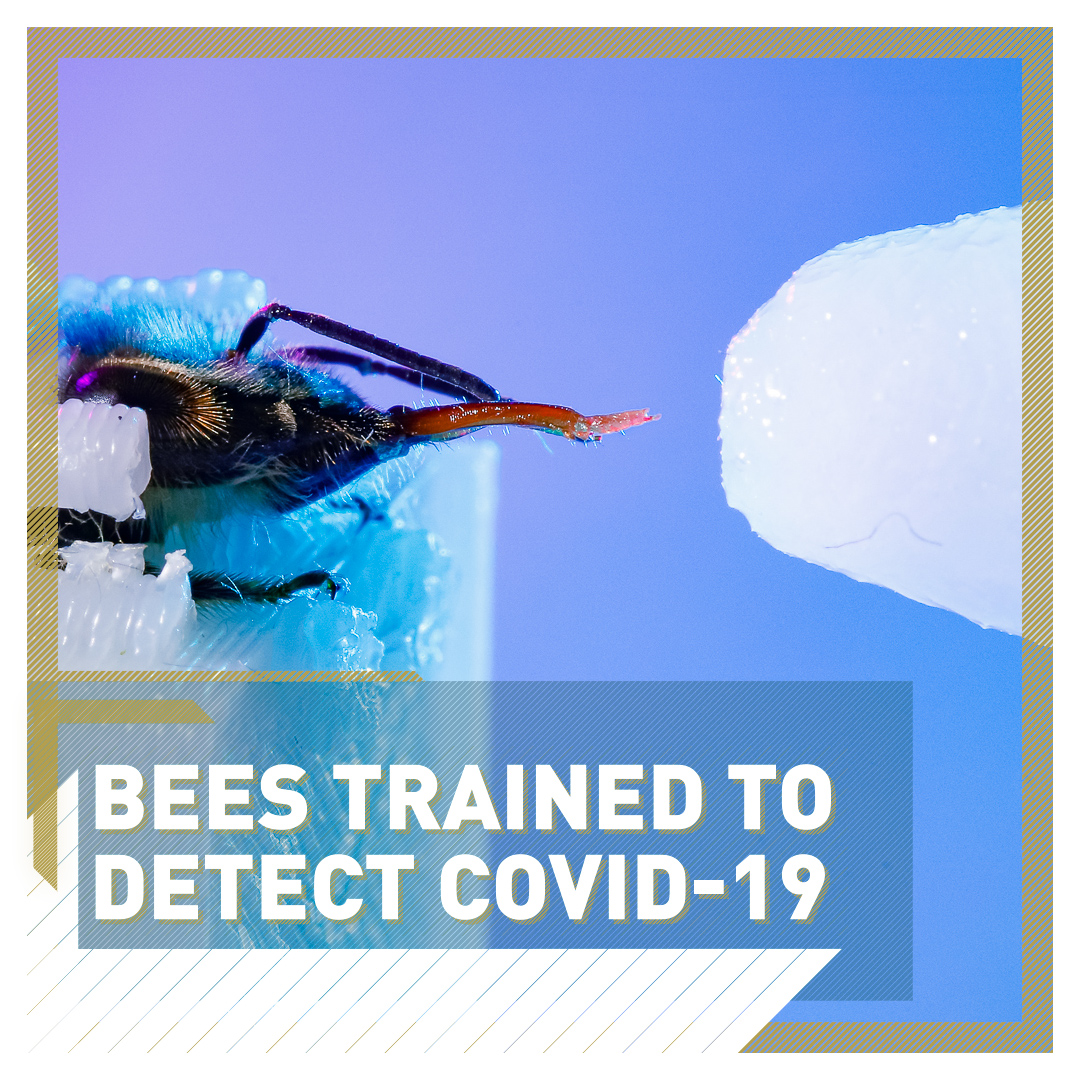00:59

Bees have a very strong sense of smell, which scientists have discovered can help with detecting COVID-19.
Their keen olfactory system has previously been used to detect mines through recognizing a distinctive scent. Wim van der Poel from Wageningen University in the Netherlands says that knowing this, the research team thought "maybe bees can also detect SARS coronavirus."
"We started testing this using samples that we obtained from an outbreak in mink in the Netherlands. So, we just used normal nasopharyngeal swabs that are also taken in humans for testing. We used that of the minks in the Netherlands that were infected. We already tested these samples by PCR and by comparing the results, we could see that bees could indeed discriminate between positive and negative samples."
The process of training bees to detect COVID-19 is relatively simple. First, they are are presented with positive and negative samples, previously tested by PCR. Once the bees have been presented with a positive sample, sugar water is presented afterwards.
Through this process, bees learn to extend their proboscis, which is like a tongue, when they want to take the sugar sample. After just a few hours of training, the bees learn to extend their tongue after being presented with a positive sample of coronavirus.

The honeybees, which are not harmed in the process, have been trained to extend their proboscis when they smell COVID-19. /InsectSense/Wageningen University
The honeybees, which are not harmed in the process, have been trained to extend their proboscis when they smell COVID-19. /InsectSense/Wageningen University
Wim van der Poel says that this technique of detecting coronavirus could be particularly useful in areas where there are no lab facilities to carry out standard PCR tests. Instead, honeybee-based diagnostics could help to prevent the spread of coronavirus and protect people's health in remote and developing communities.
"Bees are everywhere. So, if you can do this kind of testing in an area where there are no lab facilities, that's where we think this technique can be used. It's cheap and you can train these bees very fast. So, in areas where you can do sampling of people, it's very easy, you just need the swab."
Video editor: Pedro Duarte

